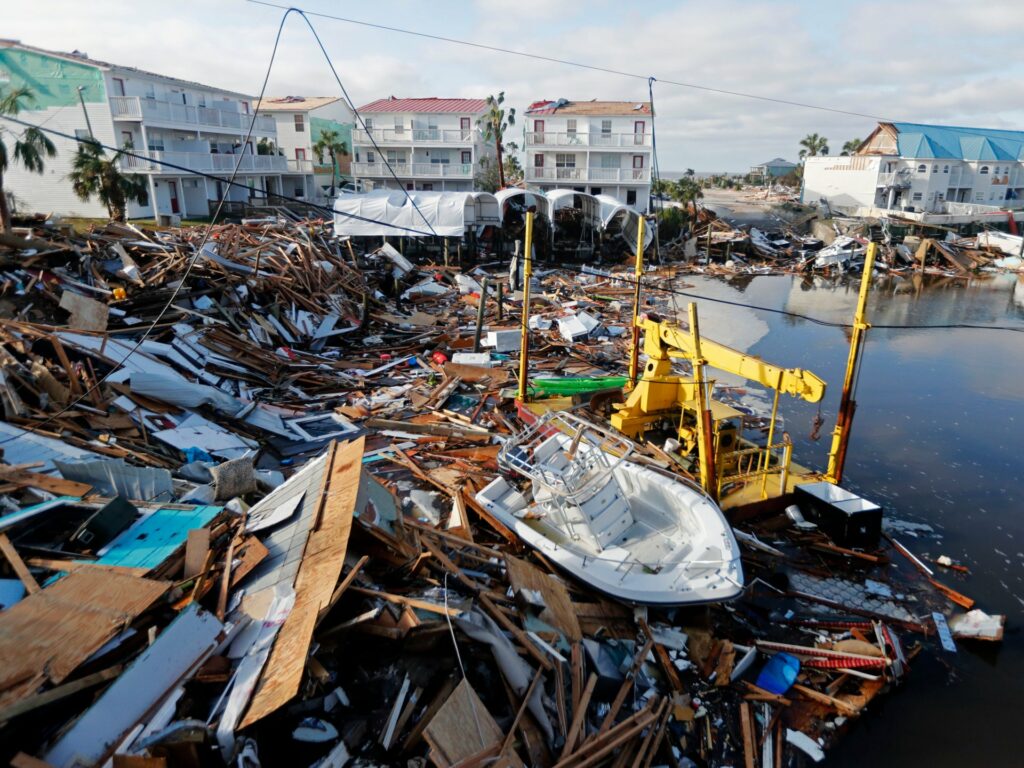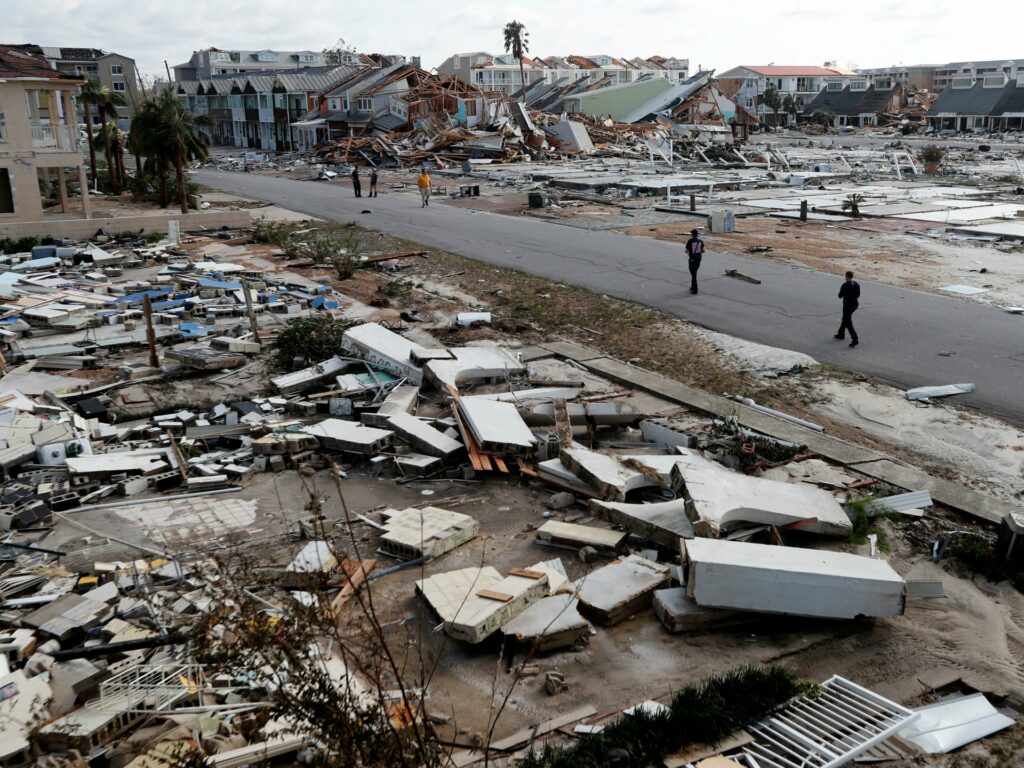We remember it well. The search for water and gas. The purchase of pounds and pounds of non-perishable food. The anticipation of the arrival of Charley, Jeanne, Frances, Irma – all unwelcome guests. Then the days and weeks without electricity, searching for food and water and gas.
If you were in Lakeland in 2004 and 2017, you remember. Now, residents of Bay County and surrounding areas in the Panhandle of Florida, and three other states, are living out similar experiences. They felt our pain then, now we share theirs. But we can help. We can’t rebuild the nearly 200 structures that have been destroyed or 2,500 damaged in Bay County alone, and we can’t bring the rising toll of 30 who died back to life, but we can do our part to provide assistance.

Gerald Herbert/AP Source
Keep reading to find out how you can help.
But first, some updates on the damage Michael did as it hit the Panhandle on Oct. 10 as one of the most powerful hurricanes – its 155 mph winds just two miles per hour from a Category 5 – to ever hit the United States. It wiped out the small town of Mexico Beach, where some people vow to rebuild.
Rescue workers continue their search-and-rescue efforts to find hundreds of people – estimates place that number at more than 700 in Florida – who may not be able to call for help because of downed power lines and spotty cell surface. Many are elderly, disabled or poor, their houses seriously damaged or destroyed.
The state has given food, water and ice to residents, including some of the 150,000-plus who remained without power Wednesday. In Bay County, one of the hardest hit, nearly 70 percent of customers do not have power, and may not for weeks as workers try to re-establish connections.
So far, 35,000 people have called the Federal Emergency Management Agency for food and housing assistance. FEMA has doled out $1 million so far to people in 12 counties. It has given out almost 5 million meals and liters of water.
In Lakeland, several local groups are collecting donations to drive to the Panhandle within a week:
Collis Roofing in Lakeland is also collecting supplies to donate. The roofing company, which has four locations in Florida, wants to help family, friends, and others whose lives have been forever changed by Hurricane Michael.
“This hurricane has caused a widespread impact and it has affected friends/family of some of our employees in the Collis family,” Ariel Fulford wrote in an Oct. 13 Facebook post announcing the collection.
“We have semi trucks ready to be packed for hauling these items, so let’s all come together and fill the semi!!! We will be accepting donations until Oct. 25 and will be wrapping everything securely on pallets for transport. We are currently working to coordinate a drop off location with the Red Cross.”
Donations can be dropped off at Collis Roofing at 2323 W. Memorial Blvd. in Lakeland.
Trinity Presbyterian Church at 301 N. Florida Ave. in Lakeland collected donations during Sunday services to send to First United Methodist church in Port St. Joe.
Other recognizable names are also involved in relief efforts. The Salvation Army and Red Cross are among those leading the way, and donations can be made to their national offices:
- American Red Cross: https://www.redcross.org
- Salvation Army: https://salvationarmysouth.org
According to www.charitynavigator.org, other organizations with solid reputations are:
- Direct Relief and Samaritan’s Purse, both listed on the website’s Best Charities Everyone’s Heard Of (but not everyone has). Direct Relief, which received a perfect score by CharityNavigator, is a humanitarian organization that assists people in emergencies or who are affected by poverty. Samaritan’s Purse, run by Franklin Graham, helps victims of natural disasters, war, poverty and more.
- Team Rubicon, which says on CharityNavigator: “Disasters are our business. Veterans are our passion.” It is a disaster-relief group of military veterans and first responders.
If you want to donate to another cause, go to www.charitynavigtor.org to ensure its legit. We’d hate to see your generosity fall into the wrong hands.

Gerald Herbert/AP Source
